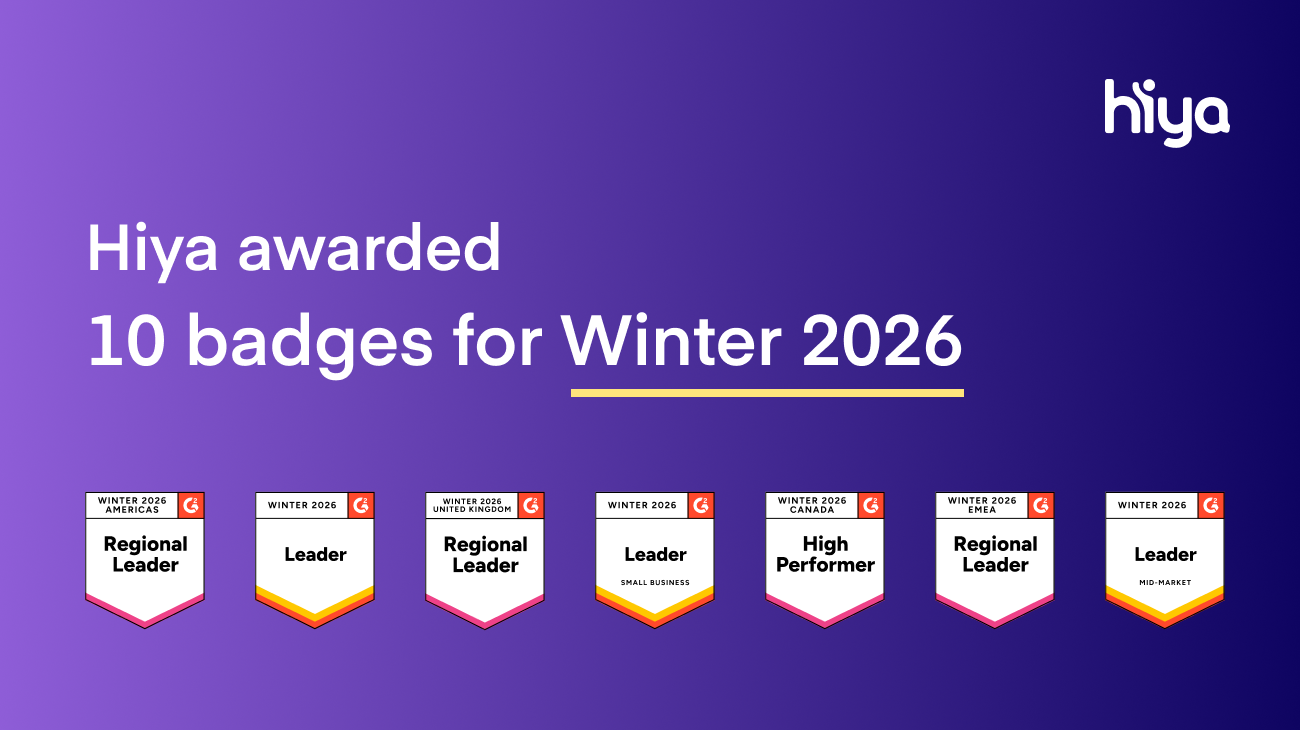
Spain has one of the worst phone spam problems in Europe. Spaniards receive an average of 13 unwanted calls (both fraud and nuisance) per person each month. That’s the second highest rate in Europe. What’s more, 17% of those calls are fraud: calls intent on stealing money or personal information. That’s according to Hiya’s most recent Global Call Threat Report, which measures phone spam in more than 40 countries worldwide.
Most common scams
In Spain, consumers using Hiya’s spam protection service through their mobile carrier, device manufacturer, or the Hiya mobile app, can report unwanted calls. They can also submit a comment about the nature of the call they received. That allows Hiya to measure the volume of specific phone scams across Spain.
Below are the top 10 phone scams reported in Spain so far this year (January-October 2025).

1. Employment – A surge in employment scams first surfaced in Spain in late 2024 and have since become the #1 phone scam in the country. After their appearance in Spain, similar scams began to pop up in other European countries. By mid-2025, employment scams had become the #1 scam in the UK and #7 in France. Spaniards report calls impersonating job matching sites such as Indeed and InfoJobs, with job offers and requests to connect on WhatsApp for more information. Sample comment:
“They say they have read my resume and they have a job offer for me, and to add them to WhatsApp and write to them.”
2. Energy/electricity – Unwanted calls regarding energy and electricity contracts usually peak in the cold winter months and hot summer months, but these calls have continued year round. In Spain, residents can choose their utilities provider, so it’s not uncommon to receive legitimate sales calls from companies competing for business. While some users reported these as telemarketing calls, many users reported them as scam calls — usually impersonating well-known energy companies serving the Spanish market.
“Attempt to scam or gather information by posing as an electricity company. They even knew my ID. Unbelievable.”
3. Mobile phone service – Just as with energy/electricity calls, some mobile phone service calls are legitimate telemarketing, but many of the calls regarding mobile phone service were reported as fraud. Commonly the scammers are trying to get the recipient to reveal personal information or obtain a credit card number for payment.
“They pretend you’ve asked them to call you to change mobile phone companies. I haven’t asked for information from any phone company.”
4. WhatsApp – There are a variety of scams where the fraudster wants to move the conversation away from the phone and onto the private messaging app WhatsApp. Employment scams (see #1) are the most common scam call requesting to connect on WhatsApp, but there are many others as well. Last year, more than 100 people were arrested in Spain for impersonating relatives who had lost their mobile phones and therefore wanted to communicate on WhatApp instead.
“When I pick up the phone, an automatic recording pops up asking me to add it to WhatsApp.”
5. Amazon imposters – Amazon is one of the world’s largest retailers, so even scammers making random calls are likely to reach someone who has an Amazon account. An often-used ploy is to impersonate an Amazon customer service representative claiming there is a problem with the credit card linked to the account, and requesting a different credit card number.
“They tell me that I have an order for an iPhone worth 900 euros in my Amazon account and that I should press 1 to cancel it. It's fraud because I don't have an Amazon account.”

6. Bank imposters – Bank scams are common in every country, and Spain is no different. Similar to the Amazon scam mentioned above, often the caller will impersonate a bank representative claiming there is some type of problem with the account. To remedy the matter, the phony representative will ask the victim for account numbers and other sensitive information that can be used to gain access to bank accounts.
“They have pretended to be my bank saying that they had detected some fraudulent payments.”
7. PayPal – Peer-to-peer payment apps are a favored method of payment for scammers. Payment apps are quick and easy, but they’re less traceable than other forms of payment such as credit cards, so for scammers it’s like stealing cash. Just as in bank scams, fraudsters use a variety of excuses to convince individuals to reveal their account details and passwords. Sample comment:
“Apparently, a €588 payment via PayPal was flagged as suspicious and is being put on hold. I was asked to provide my personal information.”
8. Insurance – Users in Spain report unwanted insurance calls offering general insurance, life insurance, funeral insurance, roadside assistance insurance, and more. Sometimes the insurance brand is not mentioned. Other times the caller may claim to represent one of the large insurance companies in Spain, hoping to catch someone with that insurance, which can make the scam more believable. Sample comment:
“They say they are insurance salesmen and ask for all your personal information.”
9. Silent calls – Many Hiya users report answering an incoming call, only to be met with silence on the other end. Why? It could be a robocall testing to see if it’s a working number, which could lead to future scam calls. Or, a silent call might get the recipient to call the number back — often calling a Premium Rate Number where the caller is charged a high fee and the scammer gets a percentage of the amount charged.
“Silent call. You call back and it says that number doesn't exist.”
10. Cryptocurrency – Cryptocurrency and other investment scams are becoming increasingly popular. Victims are lured by promises of high returns with little risk. Often these scams result in large financial losses as victims transfer money out of their traditional investment accounts and into crypto accounts that are either phony or are extremely high risk.
“They say I've made a lot of money investing in cryptocurrencies, and they ask for personal and banking information to deposit my funds. It's a lie. I never invested in that.”
How to fight back against phone scams
The best way to avoid phone scams is to prevent them from getting through in the first place.
For mobile phone carriers, there’s Hiya Protect, which protects subscribers by blocking fraud calls and labeling nuisance calls. It is used by carriers, device manufacturers, and network providers who are looking to create a differentiated voice offering and increase customer satisfaction.
For busy professionals and companies with bring-your-own-device policies, there’s the Hiya AI Phone, which features real-time scam protection, AI-voice and deepfake protection, AI-assisted call screening, and call summaries and transcripts.
For individuals using a carrier that does not offer network-based spam protection, there’s the free Hiya Spam Blocker app, which is available for Android and iPhones.

.jpg)

